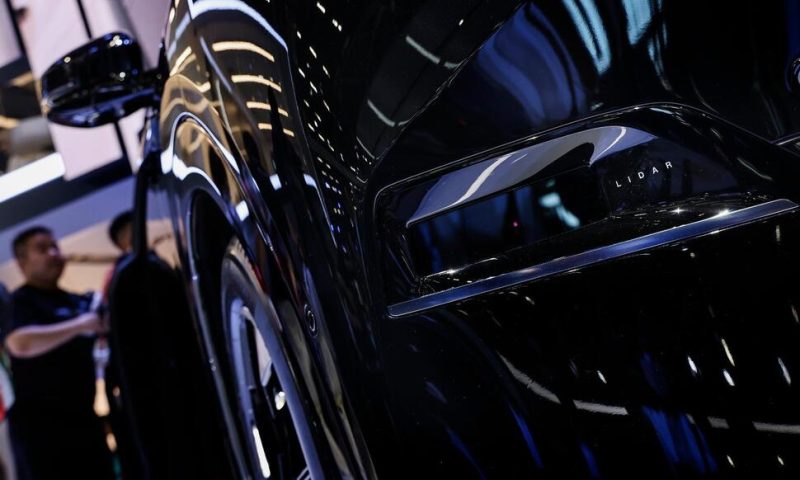A Nasdaq-listed Chinese technology company that makes parts for self-driving vehicles has threatened to sue the U.S. government after it was included in a list of companies the Pentagon says have links to the Chinese military
BANGKOK — A Nasdaq-listed Chinese technology company that makes parts for self-driving vehicles is threatening to sue the U.S. government after it was included in a list of companies the Pentagon says have links to the Chinese military.
Hesai Technology’s core product is LiDAR road sensing equipment, used in passenger and commercial vehicles, autonomous driving vehicles, delivery robots and other applications. It was among 17 companies the U.S. Department of Defense recently
added to its list of companies it considers “Chinese military companies.”
The revised list also includes Megvii, a Beijing-based artificial intelligence company and IDG Capital, a major private equity investment company with holdings in many Chinese technology companies, and major Chinese energy, telecoms and aviation companies. Its investors include U.S. pension funds and foundations.
Hesai’s inclusion on the list came without any explanation and the company plans to file a lawsuit, Hesai CEO Yifan “David” Li said in a statement that described the move as “unjust, capricious and meritless.”
“Hesai is not a military company. Hesai products are for civilian use only and have never been designed or validated for military use,” he said.
Li did not give any details on the company’s plans for legal action. The statement accused Hesai’s critics of conducting a smear campaign against it for unfair commercial advantage.
In a statement issued last week, the company said its LiDARs were not designed to conform to military specifications. The U.S. Department of Commerce has designated them as not being suitable for any military application, it said.
Hesai’s stock price has fallen to about $4 from about $22 a year ago.
President Joe Biden’s administration has kept in place tariffs imposed by his predecessor Donald Trump after he launched a trade war against Beijing in 2018. Under Biden, the U.S. has further limited China’s access to advanced U.S. technology, limited U.S. investments in strategically sensitive Chinese industries and expanded sanctions on leading Chinese companies like Huawei Technologies.
The Defense Department periodically updates its list of now nearly four dozen Chinese military companies to counter links between Chinese military and companies and other entities that it says appear to be civilian.
China’s foreign and commerce ministries protested the move after the list was expanded last week.
In 2021, Chinese smartphone maker Xiaomi Corp., which overtook Apple Inc. as the world’s No. 3 smartphone maker by sales for a time, was removed from the blacklist after it sued the U.S. government, demanding to be removed and denying it has any links with China’s People’s Liberation Army.

